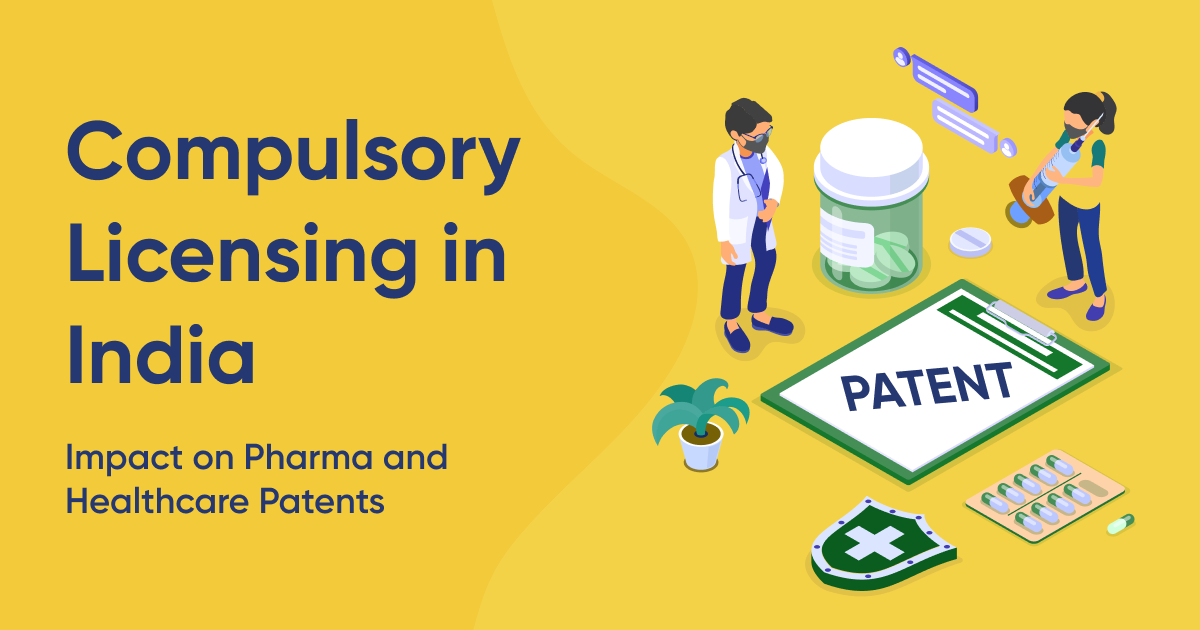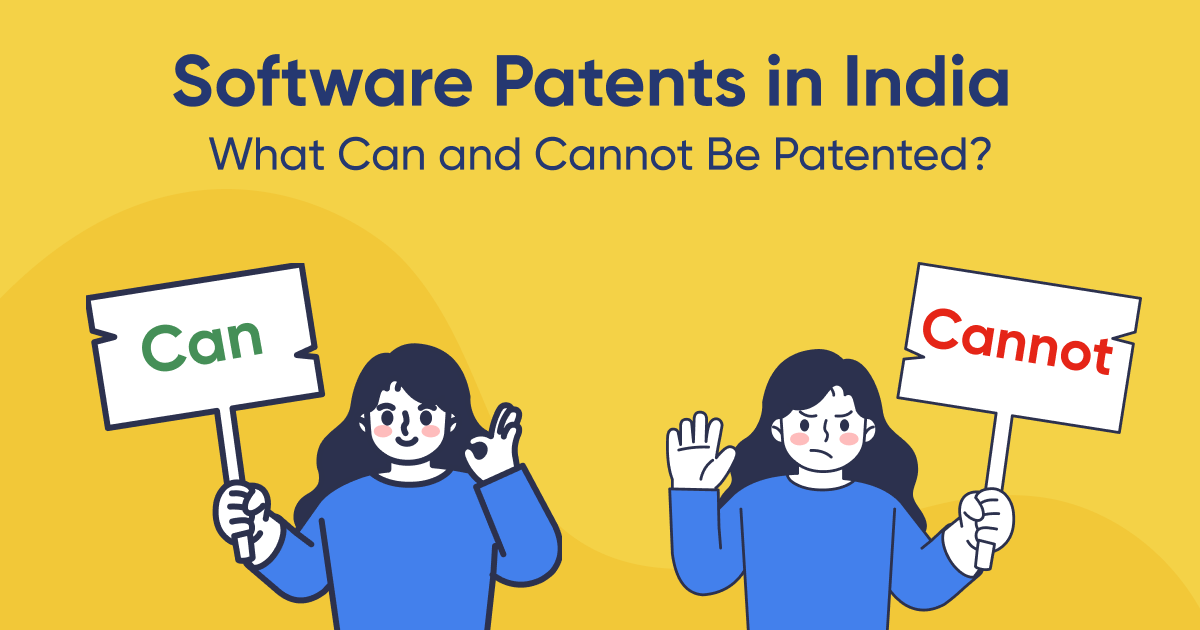All You Need to Know About Utility Patents
In today's fast-paced world, innovation is the key to success. Entrepreneurs and businesses thrive on bringing unique solutions to the market, making intellectual property protection critical to maintaining a competitive edge. One of the most essential forms of protection for inventions and innovations is the utility patent. But what exactly is a utility patent, and how does it differ from other types of patents? In this blog, we will explore everything you need to know about utility patents, especially in the Indian context, helping you understand its importance, the application process, and how to protect your innovations effectively.
What is a Utility Patent?
A utility patent is a legal document granted by the government that gives the patent holder exclusive rights to make, use, and sell an invention for a specific period, typically 20 years. This type of patent is granted for inventions or discoveries of new and useful processes, machines, compositions of matter, or improvements to existing products or technologies.
Unlike a design patent, which only protects the ornamental design or appearance of a product, a utility patent protects how the invention works or functions. Utility patents are crucial for inventors looking to safeguard their unique methods, tools, or technologies from being copied by competitors.
Key Elements of a Utility Patent
To qualify for a utility patent, an invention must meet certain criteria:
- Novelty: The invention must be new and not disclosed to the public before the patent application is filed.
- Non-Obviousness: The invention should not be an obvious improvement or extension of existing knowledge to someone skilled in the field.
- Utility: The invention must be useful and serve a practical purpose.
- Patentable Subject Matter: The invention should fall under categories such as a process, machine, manufacture, or composition of matter.
Types of Utility Patents
There are several types of inventions that can qualify for utility patents. Some common categories include:
- Processes: This includes new methods or processes of doing something, such as manufacturing techniques or algorithms.
- Machines: Devices or machines that are new or have improved functionality.
- Manufactures: Objects or articles made through a manufacturing process.
- Compositions of Matter: Chemical compositions, such as pharmaceuticals, alloys, or compounds.
- Improvements: Significant improvements to existing machines or processes.
The Utility Patent Process in India
At Trademarkia, we understand that navigating the patent system can be a complex and time-consuming process. That's why we offer comprehensive utility patent services to help reduce your workload and ensure your innovations are protected. Here's how the utility patent process works in India, and how Trademarkia can assist you every step of the way:
- Conduct a Patent Search: Before filing for a utility patent, it's essential to ensure that your invention is novel and has not been previously patented. Trademarkia provides thorough patent search services, giving you confidence that your invention is unique and reducing the risk of any future conflicts or infringements.
- Prepare the Patent Application: Crafting a strong and accurate patent application is critical for the successful grant of your patent. Trademarkia's team of experts will assist in preparing detailed and precise patent applications, including drafting the description, claims, and diagrams to represent your invention effectively.
- Filing the Patent Application: Once your application is ready, Trademarkia will handle the filing process with the Indian Patent Office. Whether you're filing domestically or seeking international protection, we can ensure your application is submitted accurately and efficiently, minimizing delays.
- Patent Examination: During the examination phase, the Indian Patent Office reviews your application to verify its novelty, non-obviousness, and utility. Trademarkia manages communications with the patent office and addresses any objections or queries that may arise, ensuring that your application stays on track for approval.
- Grant of Patent: After a successful examination, your patent will be granted, providing you with exclusive rights to your invention for up to 20 years. Trademarkia will guide you through the final steps to ensure that your patent rights are fully secured and recognized.
- Post-Grant Requirements: Maintaining your patent is vital for its validity. Trademarkia offers renewal services to keep your patent in good standing by handling periodic maintenance fees and other post-grant requirements on your behalf.
By partnering with Trademarkia, you can streamline the entire patent process and focus on what matters most—your business and innovation. Let us handle the legal and administrative complexities so you can rest assured that your intellectual property is protected.
Benefits of a Utility Patent
Securing a utility patent can provide numerous benefits to inventors and businesses, such as:
- Exclusive Rights: You gain the exclusive right to make, use, and sell the invention, preventing competitors from copying or exploiting your technology.
- Licensing Opportunities: Patents can be licensed to third parties for a fee, generating a stream of passive income.
- Increased Market Value: Patents can enhance the market value of your business, attracting investors and potential buyers.
- Competitive Advantage: Protecting your innovations gives you a competitive edge in the marketplace, allowing you to maintain control over your unique technologies.
Challenges in Securing Utility Patents in India
Despite the benefits, obtaining a utility patent can be challenging, particularly in a developing market like India. Some of the challenges include:
- Lengthy Application Process: The patent application process can be time-consuming, often taking several years to complete due to backlogs in the patent office.
- Costs: Patent applications can be expensive, especially if you need to hire legal and technical experts to assist in drafting and prosecuting your application.
- Strict Examination Standards: Patent examiners apply strict standards to determine the novelty and non-obviousness of an invention, which can result in rejections or requests for revisions.
- Infringement Risks: Despite securing a patent, enforcing it against infringers can be difficult and costly, particularly in markets where intellectual property laws are still evolving.
International Utility Patents
Many Indian companies and inventors are increasingly looking to secure utility patents not only in India but also in other jurisdictions, such as the United States, Europe, and China. The Patent Cooperation Treaty (PCT) provides a streamlined process for applying for patents in multiple countries simultaneously, which is a significant advantage for Indian innovators looking to expand globally.
How Trademarkia Can Help
While obtaining a utility patent can be a complex and lengthy process, having the right support can make all the difference. Platforms like Trademarkia offer patent search and filing services, assisting inventors and businesses through each stage of the process, from patent search to application and maintenance.
With their global network of IP experts, Trademarkia can provide crucial guidance in navigating the legal landscape both in India and internationally.
Conclusion: Securing Your Innovation’s Future
In today's competitive business environment, protecting your innovations is more important than ever. Utility patents offer the legal protection necessary to ensure that your hard work and creativity are not exploited by others.
By understanding the utility patent process and the benefits it provides, you can safeguard your inventions and take full advantage of the opportunities they offer.
If you’re ready to take the next step in protecting your intellectual property, don’t hesitate. Reach out to Trademarkia experts in the field who ensure that your innovations are protected for years to come.
Whether you're an individual inventor or a business looking to secure its technological advancements, a utility patent could be the key to your long-term success.







